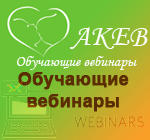–Я–Њ–і–±–Њ—А–Ї–∞ —Б—Б—Л–ї–Њ–Ї –Њ –і–ї–Є—В–µ–ї—М–љ–Њ—Б—В–Є –У–Т
http://mal-kuz.ru/forum/viewtopic.php?f=17&t=13917:
http://www.pravda.ru/health/gynaecology ... -family-0/
–У–ї–∞–≤–љ—Л–є –∞–Ї—Г—И–µ—А-–≥–Є–љ–µ–Ї–Њ–ї–Њ–≥ –†–Њ—Б—Б–Є–Є, –∞–Ї–∞–і–µ–Љ–Є–Ї –†–Р–Ь–Э –Т–ї–∞–і–Є–Љ–Є—А –Э–Є–Ї–Њ–ї–∞–µ–≤–Є—З –°–Х–†–Ю–Т (2003 –≥–Њ–і) "- –Ч–љ–∞—З–Є—В, –≥–ї–∞–≤–љ—Г—О —А–Њ–ї—М –≤ —Б–љ–Є–ґ–µ–љ–Є–Є —А–Њ–ґ–і–∞–µ–Љ–Њ—Б—В–Є –Є–≥—А–∞–µ—В –љ–µ —Б–Њ—Б—В–Њ—П–љ–Є–µ –Ј–і–Њ—А–Њ–≤—М—П –ґ–µ–љ—Й–Є–љ, –∞ –Є—Е –ґ–µ–ї–∞–љ–Є–µ –Є–ї–Є –љ–µ–ґ–µ–ї–∞–љ–Є–µ —А–Њ–ґ–∞—В—М –і–µ—В–µ–є?
- –Т—Б–µ —Н—В–Њ –Њ—З–µ–љ—М —В–µ—Б–љ–Њ —Б–≤—П–Ј–∞–љ–Њ –Љ–µ–ґ–і—Г —Б–Њ–±–Њ–є. –Ф–ї—П —В–Њ–≥–Њ —З—В–Њ–±—Л –љ–Њ—А–Љ–∞–ї—М–љ–Њ –њ—А–Њ—П–≤–ї—П–ї–∞—Б—М —А–µ–њ—А–Њ–і—Г–Ї—В–Є–≤–љ–∞—П —Д—Г–љ–Ї—Ж–Є—П –ґ–µ–љ—Й–Є–љ—Л, –µ–є –љ–µ–Њ–±—Е–Њ–і–Є–Љ–Њ —А–Њ–і–Є—В—М —В—А–µ—Е вАФ —З–µ—В—Л—А–µ—Е –і–µ—В–µ–є –Є –Ї–Њ—А–Љ–Є—В—М –Є—Е –≥—А—Г–і—М—О –љ–µ –Љ–µ–љ–µ–µ —З–µ–Љ –њ–Њ –і–≤–∞ –≥–Њ–і–∞, –Ї–∞–Ї —Н—В–Њ –њ—А–µ–і—Г—Б–Љ–Њ—В—А–µ–љ–Њ –њ—А–Є—А–Њ–і–Њ–є. –Э–µ–Њ—Б–Њ–Ј–љ–∞–љ–љ–Њ —Б–ї–µ–і—Г—П —Н—В–Њ–Љ—Г –њ—А–∞–≤–Є–ї—Г, –ґ–µ–љ—Й–Є–љ–∞ –≤ –Ї–Њ–љ—Ж–µ –њ—А–Њ—И–ї–Њ–≥–Њ –≤–µ–Ї–∞ –Ј–∞ –≤—Б—О —Б–≤–Њ—О –ґ–Є–Ј–љ—М –Є–Љ–µ–ї–∞ –ї–Є—И—М 30 вАФ 50 –Љ–µ–љ—Б—В—А—Г–∞—Ж–Є–є. –Р –≤ –љ—Л–љ–µ—И–љ–Є–µ –≤—А–µ–Љ–µ–љ–∞ –Њ–љ–∞ –Є–Љ–µ–µ—В –Є—Е –≤ –і–µ—Б—П—В—М —А–∞–Ј –±–Њ–ї—М—И–µ. –≠—В–Њ –µ–ґ–µ–Љ–µ—Б—П—З–љ–Њ–µ –Ї–Њ–ї–µ–±–∞–љ–Є–µ —Н–љ–і–Њ–Ї—А–Є–љ–љ–Њ–≥–Њ —Б—В–∞—В—Г—Б–∞ –љ–µ –њ—А–Њ—Е–Њ–і–Є—В –±–µ—Б—Б–ї–µ–і–љ–Њ. –Ю—В–љ—О–і—М –љ–µ —Б–ї—Г—З–∞–є–љ–Њ —В–∞–Ї —И–Є—А–Њ–Ї–Њ —А–∞—Б–њ—А–Њ—Б—В—А–∞–љ–Є–ї–Є—Б—М —Б–µ–є—З–∞—Б –Ј–∞–±–Њ–ї–µ–≤–∞–љ–Є—П, –Ї–Њ—В–Њ—А—Л—Е —А–∞–љ—М—И–µ –њ–Њ—З—В–Є –љ–µ –Ј–љ–∞–ї–Є, вАФ –Љ–Є–Њ–Љ–∞ –Љ–∞—В–Ї–Є, —Н–љ–і–Њ–Љ–µ—В—А–Є–Њ–Ј, —А–∞–Ї –Љ–Њ–ї–Њ—З–љ–Њ–є –ґ–µ–ї–µ–Ј—Л. "
–Ф–∞–ї–µ–µ:
–Я–µ—А–≤–Њ–Є—Б—В–Њ—З–љ–Є–Ї http://www.kellymom.com/bf/bfextended/ebf-benefits.html
–Х–≥–Њ –њ–µ—А–µ–≤–Њ–і
https://akev.ru/content/view/42/52/–Х—Й–µ
–У–ї–Њ–±–∞–ї—М–љ–∞—П —Б—В—А–∞—В–µ–≥–Є—П –њ–Њ –Ї–Њ—А–Љ–ї–µ–љ–Є—О –і–µ—В–µ–є –≥—А—Г–і–љ–Њ–≥–Њ –Є —А–∞–љ–љ–µ–≥–Њ –≤–Њ–Ј—А–∞—Б—В–∞ –Т–Ю–Ч, 2003
–°—В—А–∞–љ–Є—Ж–∞ 8. –Ь–Њ–ґ–љ–Њ —В—Г—В –Њ–љ-–ї–∞–є–љ –њ–Њ—Б–Љ–Њ—В—А–µ—В—М
http://clck.ru/FKmw
–Ъ–Њ—А–Љ–ї–µ–љ–Є–µ –Є –њ–Є—В–∞–љ–Є–µ –≥—А—Г–і–љ—Л—Е –і–µ—В–µ–є –Є –і–µ—В–µ–є —А–∞–љ–љ–µ–≥–Њ –≤–Њ–Ј—А–∞—Б—В–∞
–Т–Ю–Ч, 2003 –°—В—А–∞–љ–Є—Ж–∞ 183
–Ь–Њ–ґ–љ–Њ —В—Г—В
http://clck.ru/FKmw
–Р–≤—Б—В—А–∞–ї–Є—П. –Ф–∞–љ–љ—Л–µ –Є—Б—Б–ї–µ–і–Њ–≤–∞–љ–Є–є
http://www.breastfeeding.asn.au/bfinfo/sustained.html
–°–Љ–Њ—В—А–µ—В—М –≤ —Б–µ—А–µ–і–Є–љ–µ "Effects on the mother"
–Ы—О–±—Л–Љ –њ–µ—А–µ–≤–Њ–і—З–Є–Ї–Њ–Љ –љ–Њ—А–Љ–∞–ї—М–љ–Њ –і–ї—П –њ–Њ–љ–Є–Љ–∞–љ–Є—П –Љ–Њ–ґ–љ–Њ –њ–µ—А–µ–≤–µ—Б—В–Є.
–Ь–Њ–ґ–љ–Њ, –Ї–Њ–љ–µ—З–љ–Њ, –њ–Њ—Б–Љ–Њ—В—А–µ—В—М –Є —А—Г–Ї–Њ–≤–Њ–і—Б—В–≤–Њ –Т–Ю–Ч –њ–Њ –У–Т 1993 –≥ (—А—Г—Б—Б–Ї–Њ–µ –Є–Ј–і–∞–љ–Є–µ), –Ї–Њ—В–Њ—А–Њ–µ –±—Л–ї–Њ –њ–µ—А–µ–Є–Ј–і–∞–љ–Њ –≤ 2006 –≥–Њ–і—Г
http://clck.ru/FKtm
–†–µ–Ї–Њ–Љ–µ–љ–і–∞—Ж–Є–Є –°–®–Р –њ–Њ –і–ї–Є—В–µ–ї—М–љ–Њ—Б—В–Є –У–Т, 2005
http://clck.ru/5v6H
–Х–≤—А–Њ–њ–∞, 2009
http://clck.ru/FKyu
–†–Њ—Б—Б–Є—П. –Э–∞—Ж–Є–Њ–љ–∞–ї—М–љ–∞—П –њ—А–Њ–≥—А–∞–Љ–Љ–∞. 2009-2011
http://clck.ru/82KD
–Ш—Б—Б–ї–µ–і–Њ–≤–∞–љ–Є–µ –°–®–Р
http://clck.ru/FL1G
–Ш—Б—Б–ї–µ–і–Њ–≤–∞–љ–Є–µ –Р–љ–≥–ї–Є—П
http://clck.ru/FL1X
–Ш—Б—Б–ї–µ–і–Њ–≤–∞–љ–Є–µ –Ш—Б–ї–∞–љ–і–Є—П
http://clck.ru/FL1o
–Ъ–Є—В–∞–є—Ж—Л
http://clck.ru/FL2N
–Р–Љ–µ—А–Є–Ї–∞–љ—Ж—Л
http://clck.ru/FL2m
–Т–Њ—В –µ—Й–µ –і–∞–љ–љ—Л–µ –њ–Њ –і–Њ–ї–≥–Њ–Ї–Њ—А–Љ–ї–µ–љ–Є—О. –Э–Х –С–Ђ–Ы–Ю, –Э–Х–Ґ –Є –Э–Х –С–£–Ф–Х–Ґ –Т–†–Х–Ф–Р!
http://www.llli.org/russian/subject/imp ... efits.html
https://akev.ru/content/view/39/52/https://akev.ru/content/view/42/52/http://www.llli.org/release/cancer.html
–Є —В–∞–Љ –ґ–µ –њ–Њ —В–µ–≥—Г cancer http://www.llli.org/search?cx=001203639 ... 8&q=cancer
http://www.llli.org/russian/subject/out ... ealth.html
http://www.llli.org/russian/subject/out ... gterm.html
–°–њ–Є—Б–Њ–Ї –Є—Б—В–Њ—З–љ–Є–Ї–Њ–≤:
Stuebe AM, et al. Lactation and incidence of premenopausal breast cancer: a longitudinal study. Arch Intern Med. 2009;169(15):1364вАУ1371.
Jernstrom H, et al. Breast-feeding and the risk of breast cancer in BRCA1 and BRCA2 mutation carriers. J Natl Cancer Inst. 2004 Jul 21;96(14):1094-8.
Lee SY, Kim MT, Kim SW, Song MS, Yoon SJ. Effect of lifetime lactation on breast cancer risk: A Korean WomenвАЩs Cohort Study. Int J Cancer. 2003 Jun 20;105(3):390-3.
Collaborative Group on Hormonal Factors in Breast Cancer. Breast cancer and breastfeeding: collaborative reanalysis of individual data from 47 epidemiological studies in 30 countries, including 50302 women with breast cancer and 96973 women without the disease. Lancet. 2002 Jul 20; 360(9328): 187-95.
Lipworth L, Bailey LR, Trichopoulos D. History of breast-feeding in relation to breast cancer risk: a review of the epidemiologic literature. J Natl Cancer Inst. 2000;92(4):302вАУ312.
Zheng T et al. Lactation reduces breast cancer risk in Shandong Province, China. Am J Epidemiol 2000 Dec 15;152(12):1129-35.
Zheng T et al. Lactation and breast cancer risk: a case-control study in Connecticut. Br J Cancer 2001 Jun;84(11):1472-6.
Furberg H, Newman B, Moorman P, Millikan R. Lactation and breast cancer risk. Int J Epidemiol 1999;28:396-402.
Ing R, Ho JHC, Petrakis NL. Unilateral breastfeeding and breast cancer. Lancet July 16, 1997;124-27.
Romieu I, Hern?ndez-Avila M, Lazcano E, Lopez L, Romero-Jaime R. Breast cancer and lactation history in Mexican women. Am J Epidemiol 1996;143:543-52.
Newcomb PA, Storer BE, Longnecker MP, Mittendorf R, Greenberg ER, Clapp RW, et al. Lactation and a reduced risk of premenopausal breast cancer. N Eng J Med 1994;330:81-7.
United Kingdom National Case-Control Study Group. Breastfeeding and risk of breast cancer in young women. Br Med J 1993;307:17-20.
Reuter KL, Baker SP, Krolikowski FJ. Risk factors for breast cancer in women undergoing mammography. Am J Radiol 1992;158:273-8.
Yoo K-Y, Tajima K, Kuroishi T, Hirose K, Yoshida M, Miura S, Murai H. Independent protective effect of lactation against breast cancer: a case-control study in Japan. Am J Epidemiol 1992;135:726-33.
Layde PM, Webster LA, Baughman AL, Wingo PA, Rubin GL, Ory HW and the cancer and steroid hormone study group. The independent associations of parity, age at first full term pregnancy, and duration of breastfeeding with the risk of breast cancer. J Clin Epidemiol 1989;42:963-73.
Siskind V, Schofield F, Rice D, Bain C. Breast cancer and breastfeeding: results from an Australian case-control study. Am J Epidemiol 1989;130:229-36.
Tao S-C, Yu MC, Ross RK, Xiu K-W. Risk factors for breast cancer in Chinese women of Beijing. Int J Cancer 1988;42:495-98.
Yuan J-M, Yu MC, Ross RK, Gao Y-T, Henderson BE. Risk factors for breast cancer in Chinese women in Shanghai. Cancer Res 1988;58:99-104.
McTiernan A, Thomas DB. Evidence for a protective effect of lactation on risk of breast cancer in young women. Am J Epidemiol 1986;124:353-74.



